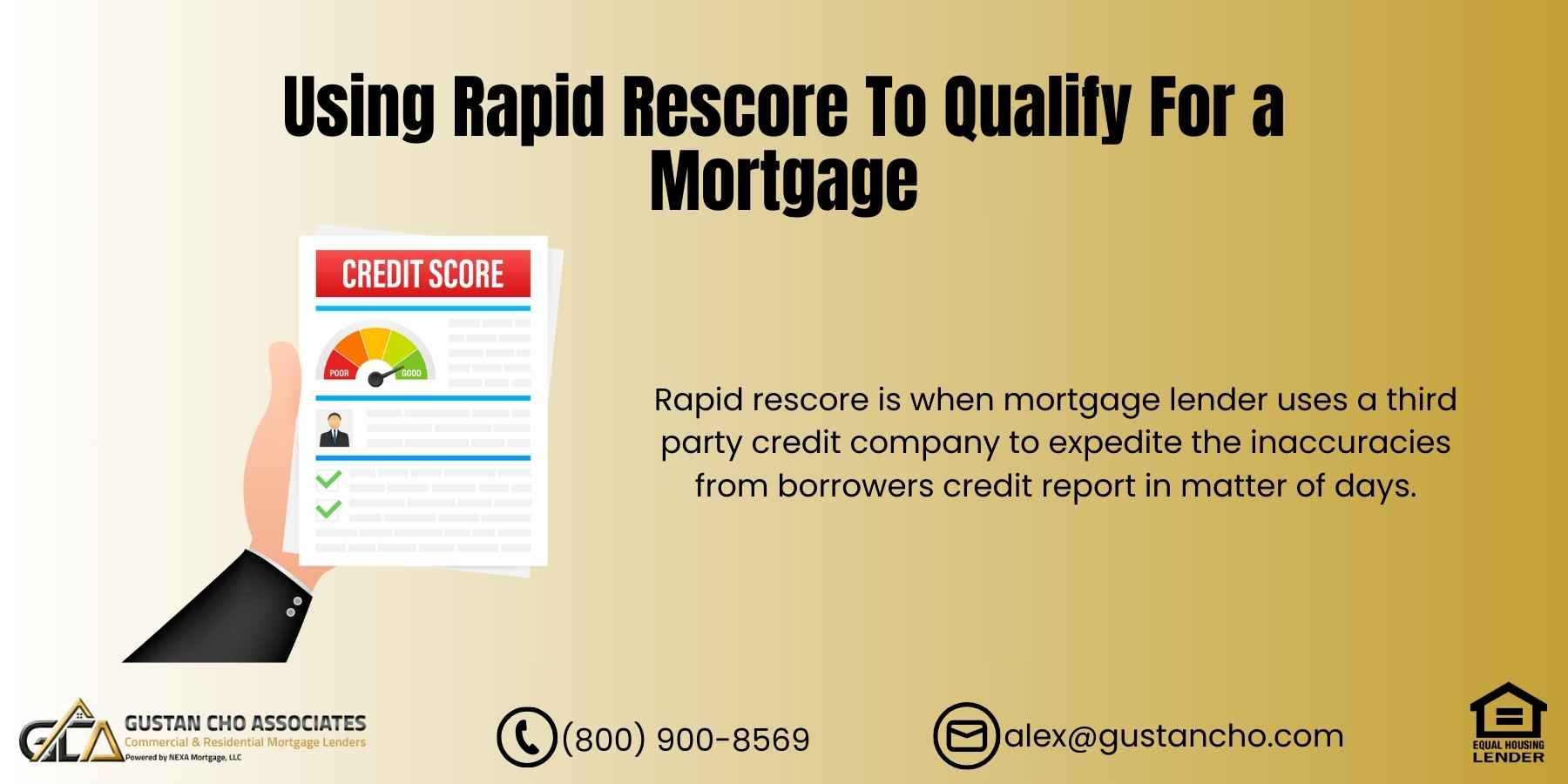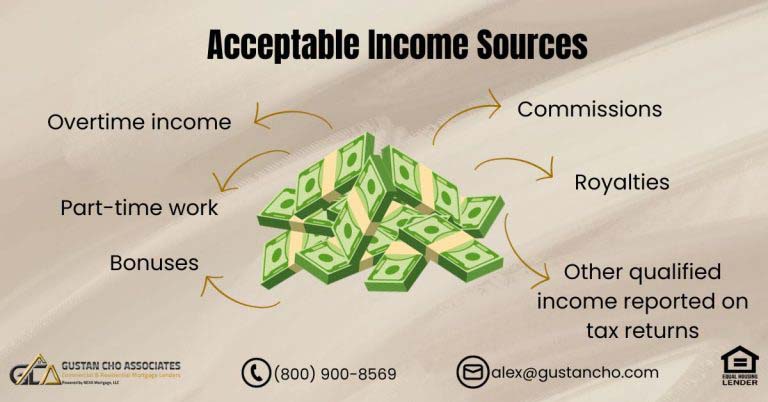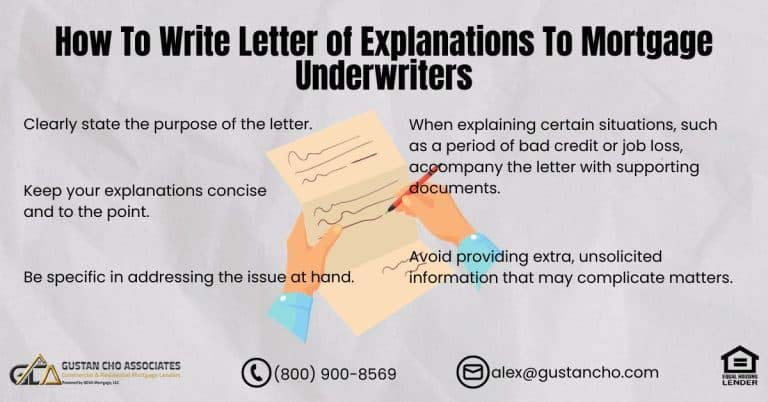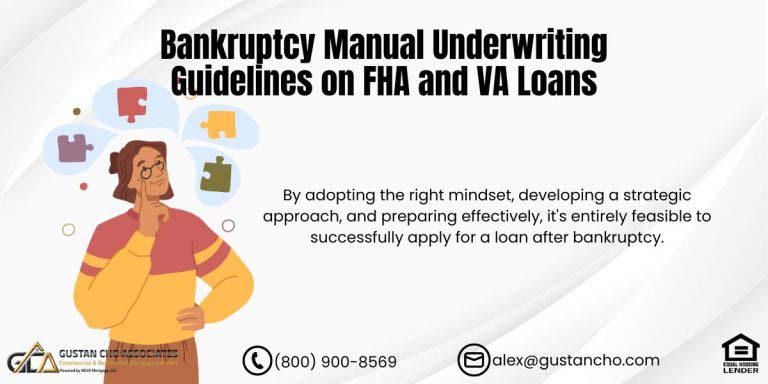How Does Rapid Rescore Assist You in Securing a Mortgage in 2024?
Imagine this: You’re almost ready to buy your dream home, but your credit score is holding you back. Maybe you’ve been working hard to pay down debt, or there’s a mistake on your credit report making your score look lower than it should be. Waiting for your credit to update could take weeks—time you don’t have when trying to lock in a good mortgage rate. That’s where rapid rescore can save the day.
In this guide, we’ll explain how the rapid rescore process works in 2024, how it can quickly boost your credit score, and how it can help you get a better mortgage. By the end of this article, you’ll have a clear picture of how to use rapid rescore to your advantage when applying for a home loan.
What Is Rapid Rescore?
Rapid Rescore is a service offered through lenders that helps speed up the process of updating your credit report. Normally, changes can take 30 to 60 days to reflect on your credit report. However, with rapid rescore, those updates can happen in 3 to 5 business days, allowing your lender to see your new credit score quickly.
Rapid rescore can make a big difference if you’ve recently paid off debt, need to fix an error or have outdated information on your credit report. While borrowers can’t request rapid rescore themselves, your lender can do it on your behalf to help you get a better mortgage deal.
Need a Quick Credit Boost? Get a Rapid Rescore Today!
Contact us now to learn how this service can boost your score and help you close your loan faster.
How Can Rapid Rescore Can Help You Qualify for a Mortgage?
Mortgage lenders rely heavily on credit scores to decide whether to approve your loan and what interest rate to offer. A poor credit score might result in elevated interest rates or, even more concerning, rejection of your loan request. Rapid Rescore can assist you in gaining quicker approvals, obtaining improved loan conditions, or even enabling you to qualify for a mortgage that was previously denied. Here’s how it works.
Common Reasons for Rapid Rescore
There are several situations where rapid rescore might be helpful for borrowers looking to get a mortgage in 2024:
- Paying Off Debt: Large credit card balances can adversely affect your credit score. Reducing or eliminating your credit card debt and getting a rapid rescore could enhance your score promptly.
- Fixing Credit Report Errors: Errors like incorrect late payments, outdated account statuses, or even wrong personal information can affect your credit score. Rapid rescore allows you to correct these issues quickly.
- Disputing Negative Information: If your credit report contains inaccurate or outdated negative information—such as an old collection that’s been paid off—rapid rescore can update your report faster than the traditional dispute process.
How Does the Rapid Rescore Process Work?
Let’s break down the rapid rescore process step-by-step so you know exactly what to expect when trying to improve your credit score fast.
Step 1: Contact Your Lender
Only your mortgage lender can trigger a rapid rescore, so the initial action is to talk to them. They will examine your credit report and pinpoint aspects that could enhance your credit score with updates.
Your loan officer will ask you for documentation to prove the updates—this could be proof of payment on a credit card, updated account information, or a letter confirming an error on your credit report.
Step 2: Provide Documentation
Once you’ve identified the issue, you must gather the right documents. You’ll need a statement showing the new balance if you’ve paid off a credit card. If there’s an error on your credit report, you may need to provide documents that prove the information is incorrect.
Pro tip: The faster you get this paperwork to your lender, the quicker the rapid rescore process will go.
Step 3: Lender Submits Rapid Rescore Request
Your lender will send your documentation to a third-party credit agency that handles rapid rescores. This agency works directly with the three main credit bureaus (TransUnion, Equifax, and Experian) to update your credit report.
Step 4: Wait for Your Credit Score Update
In contrast to the conventional approach, which may require as long as 60 days, a rapid rescore refreshes your credit report in only 3 to 5 business days. After the credit bureaus handle the updated information, your credit score will reflect the changes, and your lender will have access to the new score.
Step 5: Reevaluate Your Loan Application
Once your credit score is updated, your lender will reevaluate your loan application based on the new information. If your credit score improves enough, you may now qualify for a better interest rate or even get approved for the mortgage you were denied earlier.
Case Study: How Rapid Rescore Helped John Qualify for a Mortgage
John was ready to buy his first home. He found a beautiful property, but his credit score was 615—too low to get a good interest rate. John’s loan officer reviewed his credit report and found that his credit card balances were too high, dragging down his score.
John quickly paid off his credit cards, but waiting 30 to 60 days for his credit score to update wasn’t an option. His lender initiated a rapid rescore, and within 5 days, his credit score jumped to 670. Not only did John qualify for a better mortgage rate, but he also saved thousands of dollars over the life of his loan.
Why Timing is Everything with Rapid Rescore
Timing can make or break your home-buying experience, especially in today’s competitive housing market. Interest rates fluctuate constantly, and missing out on a better rate because of an outdated credit report can be frustrating.
With rapid rescore, you can improve your credit score quickly without having to wait for the normal update cycle. This is especially important if you’re trying to lock in a low interest rate or meet a tight closing deadline.
Want to Improve Your Credit Score Fast? Let’s Use Rapid Rescore!
Reach out now to get your credit score boosted quickly with Rapid Rescore.
Can You Use Rapid Rescore Multiple Times?
While no specific rule limits how many times you can use rapid rescore, it’s typically used as needed. Since rapid rescore is a paid service (typically paid for by the lender), it’s most beneficial when used strategically—like when you’re on the cusp of a credit score improvement that could significantly affect your mortgage rate or approval.
The Cost of Rapid Rescore
One thing to keep in mind is that rapid rescore isn’t free. While the borrower doesn’t pay for the service directly, the lender may incur fees. Some lenders may pass these fees onto you, while others cover the cost. It’s important to ask your loan officer if any fees are associated with using rapid rescore so there are no surprises.
When Should You Avoid Using Rapid Rescore?
Rapid rescore isn’t a magic fix for bad credit. It’s a tool for correcting errors or updating your credit report quickly when time is of the essence. If your credit score is low because of long-standing issues like missed payments or high balances, rapid rescore won’t help. In such situations, it’s essential to gradually improve your credit score by reducing debt, ensuring timely payments, and steering clear of new credit inquiries.
Also, rapid rescore is only helpful if your credit report has outdated or incorrect information. If your credit report is accurate but you still need a higher score, you’ll need to work on improving your credit more gradually.
Rapid Rescore vs. Credit Dispute Process
You might be wondering, “Can’t I just dispute the errors on my credit report?” While you can certainly file a dispute with the credit bureaus on your own, the dispute process can take 30 to 45 days—which is too long if you’re trying to get a mortgage approved in a short timeframe. Rapid rescore, on the other hand, speeds up the process to just 3 to 5 days.
Key Takeaways About Rapid Rescore
Here’s a quick recap of the most important things to know about rapid rescore and how it can help you qualify for a mortgage in 2024:
- Rapid rescore can enhance your credit score by updating credit report information in 3 to 5 days.
- It’s used to correct errors, update balances, and improve credit scores fast—perfect if you’re trying to qualify for a mortgage or lock in a better interest rate.
- Only a lender can request rapid rescore, and you’ll need to provide proof of payment or documentation to support your case.
- Rapid rescore can save you time and money by speeding up the process and potentially lowering your interest rate.
- While it’s not a magic solution, it’s an excellent tool for borrowers with specific credit report issues.
Final Thoughts
Rapid rescore can be a powerful tool for homebuyers or those looking to refinance in 2024. If you’re close to qualifying for a mortgage or getting a better rate, but your credit score is holding you back, talk to your lender about whether rapid rescore is right for you. It’s a quick fix that could help you achieve your homeownership dreams sooner rather than later.
Ready to take the next step? Speak to your loan officer today and see if rapid rescore can help you unlock a better mortgage rate and get you into your dream home faster. Call or text us at 800-900-8569 or email us at alex@gustancho.com to get started!
Frequently Asked Questions About Rapid Rescore:
Q: What is Rapid Rescore, and How Does it Work?
A: Rapid rescore is a service that enables your lender to promptly refresh your credit report, typically within 3 to 5 business days rather than the usual 30 to 60 days.
Q: How Can it Help Me Get a Mortgage?
A: Rapid rescore can increase your credit score by refreshing recent payments or fixing mistakes. This can assist you in qualifying for a mortgage or securing a more favorable interest rate.
Q: When Should I Consider Using Rapid Rescore?
A: Use rapid rescore if you’ve paid off debt or fixed an error on your credit report and need your credit score updated quickly to get a mortgage.
Q: Who Can Request a Rapid Rescore?
A: Only your lender can request a rapid rescore; you can’t do it directly. If you think it will help, talk to your loan officer.
Q: After a Rapid Rescore, How Long Does it Take to See My New Credit Score?
A: After a rapid rescore request, your updated credit score can show up within 3 to 5 business days.
Q: Is it, or Will I Have to Pay for it?
A: While rapid rescore usually comes with a fee, some lenders may cover it for you, so ask your loan officer if there are any costs.
Q: Will Rapid Rescore Fix All Credit Score Issues?
A: Rapid rescore is best for updating recent changes or fixing errors on your credit report, not for longstanding issues like missed payments or high debt.
Q: Can it Help Me Qualify for a Lower Mortgage Rate?
A: Yes! If rapid rescore raises your credit score, you might qualify for a better interest rate, which will save you money over the life of your loan.
Q: How Does it Compare to Disputing Errors on My Own?
A: Disputing errors can take up to 45 days, while rapid rescore can update your report in 3 to 5 days, making it faster for mortgage approvals.
Q: Can I Use Rapid Rescore More Than Once?
A: Yes, but it’s usually used when time-sensitive improvements to your credit score could directly impact your mortgage approval or rate.
This blog about “Using Rapid Rescore To Qualify For a Mortgage” was updated on October 25th, 2024.
Looking to Improve Your Credit Score Quickly? Rapid Rescore is the Solution!
Reach out now to see how Rapid Rescore can quickly raise your score and help you secure your home loan.











I would like to know if I can qualify for a home loan under my circumstances. Thanks